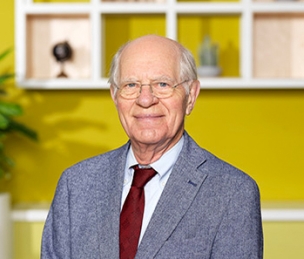Displaying 1 - 10 of 10
-
Bien, H., Levelt, W. J. M., & Baayen, R. H. (2005). Frequency effects in compound production. Proceedings of the National Academy of Sciences of the United States of America, 102(49), 17876-17881.
Abstract
Four experiments investigated the role of frequency information in compound production by independently varying the frequencies of the first and second constituent as well as the frequency of the compound itself. Pairs of Dutch noun-noun compounds were selected such that there was a maximal contrast for one frequency while matching the other two frequencies. In a position-response association task, participants first learned to associate a compound with a visually marked position on a computer screen. In the test phase, participants had to produce the associated compound in response to the appearance of the position mark, and we measured speech onset latencies. The compound production latencies varied significantly according to factorial contrasts in the frequencies of both constituting morphemes but not according to a factorial contrast in compound frequency, providing further evidence for decompositional models of speech production. In a stepwise regression analysis of the joint data of Experiments 1-4, however, compound frequency was a significant nonlinear predictor, with facilitation in the low-frequency range and a trend toward inhibition in the high-frequency range. Furthermore, a combination of structural measures of constituent frequencies and entropies explained significantly more variance than a strict decompositional model, including cumulative root frequency as the only measure of constituent frequency, suggesting a role for paradigmatic relations in the mental lexicon. -
Levelt, W. J. M. (2005). Habitual perspective. In Proceedings of the 27th Annual Meeting of the Cognitive Science Society (CogSci 2005).
-
Levelt, W. J. M. (1991). Die konnektionistische Mode. Sprache und Kognition, 10(2), 61-72.
-
Levelt, W. J. M. (1991). Lexical access in speech production: Stages versus cascading. In H. Peters, W. Hulstijn, & C. Starkweather (
Eds. ), Speech motor control and stuttering (pp. 3-10). Amsterdam: Excerpta Medica. -
Levelt, W. J. M., Schriefers, H., Vorberg, D., Meyer, A. S., Pechmann, T., & Havinga, J. (1991). Normal and deviant lexical processing: Reply to Dell and O'Seaghdha. Psychological Review, 98(4), 615-618. doi:10.1037/0033-295X.98.4.615.
Abstract
In their comment, Dell and O'Seaghdha (1991) adduced any effect on phonological probes for semantic alternatives to the activation of these probes in the lexical network. We argue that that interpretation is false and, in addition, that the model still cannot account for our data. Furthermore, and different from Dell and O'seaghda, we adduce semantic rebound to the lemma level, where it is so substantial that it should have shown up in our data. Finally, we question the function of feedback in a lexical network (other than eliciting speech errors) and discuss Dell's (1988) notion of a unified production-comprehension system. -
Levelt, W. J. M., Schriefer, H., Vorberg, D., Meyer, A. S., Pechmann, T., & Havinga, J. (1991). The time course of lexical access in speech production: A study of picture naming. Psychological Review, 98(1), 122-142. doi:10.1037/0033-295X.98.1.122.
-
Levelt, W. J. M., & Flores d'Arcais, G. B. (1975). Some psychologists' reactions to the Symposium of Dynamic Aspects of Speech Perception. In A. Cohen, & S. Nooteboom (
Eds. ), Structure and process in speech perception (pp. 345-351). Berlin: Springer. -
Levelt, W. J. M. (1975). Systems, skills and language learning. In A. Van Essen, & J. Menting (
Eds. ), The context of foreign language learning (pp. 83-99). Assen: Van Gorcum. -
Levelt, W. J. M., & Kempen, G. (1975). Semantic and syntactic aspects of remembering sentences: A review of some recent continental research. In A. Kennedy, & W. Wilkes (
Eds. ), Studies in long term memory (pp. 201-216). New York: Wiley. -
Levelt, W. J. M. (1975). What became of LAD? [Essay]. Lisse: Peter de Ridder Press.
Abstract
PdR Press publications in cognition ; 1

Share this page